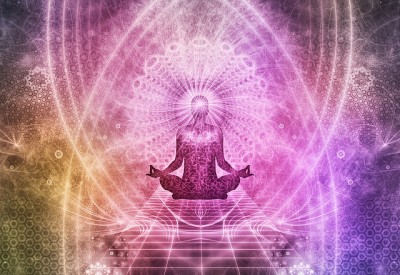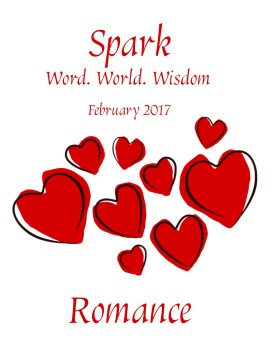by Snigdha Mohanty
Knowledge is power. We all know and accept this as an axiomatic truth. But what we forget too often is that the known could be one of the worst trappings on our journey toward knowledge – be it in the material world, or our inner world. The knowns run the risk of becoming the darkest blind spots in one’s pursuit of true knowledge; so let us never mix up the two.
The known acts as a conditioning of our mind, discouraging us from probing further, like is the case with the huge tamed elephant standing at one place, merely tied to a small pole with an ordinary rope, although it has all the physical power to uproot that pole and escape!
The elephant knows from its past that it can’t break free once tied to a pole. When very young, mahouts train elephants to stay in one place by tying them to heavy beams or huge tree trunks with iron chains or thick ropes, so that the young elephant fails in its attempts at breaking free. After failing multiple times, it gives up trying any more, and stays wherever it gets tied. The mahout also tricks it with the act of tying (that immediately triggers its past known) using thinner ropes and smaller poles over time, to condition the elephant so that it will not use its real power in trying irrespective of the strength and size of the rope or pole. By the time the elephant grows into a mighty adult, it is already trapped in the belief that it knows the futility of trying to break free.
This known consequence embeds a negative belief that keeps the adult elephant blind to the fact that, by then, the context has changed – its physical power has grown, and the ropes and poles are weaker. But for the trap of the known, it would take the elephant just seconds to pull out the pole and escape. But it does not do that.
A similar phenomenon happens with the human mind, too.
The quest for happiness lies at the crux of all human pursuits for material progress as well as spiritual enlightenment. We all want to be happy in life. But what is happiness? We attribute happiness in our physical existence to objects of satisfying our wants – starting from basic needs to comforts and luxuries. As we keep achieving these more and more, a profound insight dawns on us: happiness is a state of being, that is not to be pursued, but realised at the level of our inner world. And the quest for happiness merges with the pursuit of knowledge on how to achieve this.
In the outer world, knowledge is power, as by applying it we can anticipate, prevent, address, and resolve problems, with known or newer solutions (innovation and discovery) or come up with entirely new solutions to old problems, or new actionable ideas to better our lives(creativity and invention).
Knowledge, in the sense of knowing the existing body of knowledge or a significant part thereof, does help us face and address problematic issues with confidence and success in many cases, which is useful, no doubt; but this use is limited to that extent only. It may take (and too often it does, actually) more than the known solutions to address these issues, especially under uncertainties, with true effectiveness, making them lose relevance with newer solutions altogether. This calls for innovation and discovery – a dynamic and evolving character of knowledge from the existing knowns through newer connections. However, knowledge in the sense of finding the new, i.e. creativity and invention, requires a completely open, flowing and continuously explorative character of knowledge. Here too, the path runs through the knowns initially, but soon enough, it starts meandering through the unknowns in exploration. And that calls for breaking free from the known, with a clear understanding that what was known at one point of time was right in the context of the tools that were available for inquiry at that point of time. Hence, instead of trapping ourselves in the known saying we know it all, it is essential to continuously challenge what we know as we move on.
In fact, that is precisely why knowledge is liberating, while too much reliance on the known could very often make one susceptible to functional fixedness* (a tendency to fixate on the common use of an object), and/or perception obscurantism* (a tendency to see only what is already known about the uses of something, rather than that something as a whole with many more possible features and dimensions). In a normal situation, how many of us would easily see that a plastic lawn chair could be used as a paddle (turn it over, grab two legs, and start rowing)? The traps of the known in the physical world are very subtle, but formidable and ensnaring, which is why, not only the ordinary, but even the experts tend to get caught in these very often without even realising they are doing so. They already know so much about their field of expertise that they tend to coalesce around the known angles and solutions, often unable to have a divergent thinking. The only way to overcome these obstacles to new ideas is to stay alert about the traps of the known, remain open-minded and keep up a spirit of inquiry.
Our inner world is not too different, either. Here, too, knowledge is power, as it takes us closer to experiencing the eternal truth about who we are. The only difference is: here “what we believe to be true” is our known (hence it is ever changing and can be different for different persons, even for the same person at different points of time, unlike in the material world where known is the same for all who know), whereas “truth” (which is permanent) is knowledge. Here the knowns are our beliefs, which lead to thoughts-attitude-action-habits-personality ultimately creating our individual destiny. The closer our knowns are to truth, the faster our pace of progress on our spiritual journey toward self-realisation, which is the ultimate knowledge!
Unless we are living in “aware” mode continuously, we would fail to see how inappropriate knowns taken in from the outer world constantly, without reflection and introspection, soon get deeply ingrained in our psyche as beliefs and everything inappropriate flows from them thereafter – reinforcing the same over and over. The road to self-transformation runs through the process of checking and re-checking our existing beliefs, and if that is not giving us the ultimate fulfilment in living in peace, love and harmony, we need to experiment with other hypotheses on how to live in a way that produce experiences we are at ease with. We need to change our belief only after we experience the effect. After all, we are blessed with a rare gift – the power to discern and discriminate between the right and the wrong. When we apply that to our knowns and change our thoughts accordingly, we change our destiny.
The need to keep our mind always open in order to guard against the traps of our own beliefs (our known) is much greater in our inner world, because while knowns in the physical world can have only limited uses, knowns in the inner world – being different for different people – are at the crux of all conflicts and sufferings in our lives. We expect from others as per our beliefs, but they always behave as per their own beliefs. The single belief that I am correct and others must go by my ideas, when checked and changed, can do miracles to our relationships, and hence our inner world.
In essence, the known is mere information, whereas knowledge is inquiry– i.e. not accepting any and every known without asking questions. In the outer world of mundane materialism, inquiry leads us to newer, more and better solutions that make our physical life easier and more comfortable. In our inner world, such inquiry leads us to the wisdom that the only way out is in, and with every myth blowing off from our belief system, our inner life, i.e. the ultimate experience of being, also becomes easier and fuller with love, peace and harmony. Is that not true happiness that each of us longs for?
*Source: “Why We Can’t See What’s Right in Front of Us” by Tony McCaffrey







Very thought provoking article, that stress the value and need to constantly question and explore one’s beliefs and push out the boundaries of our awareness and grow one’s inner self . Highly recommended !
Thanks a lot, Rahul, for your valuable comments!